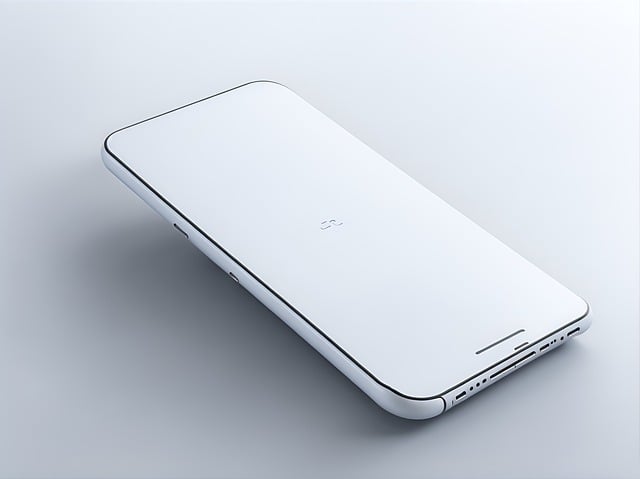Artificial intelligence (AI) technology has revolutionized the way we interact with our smartphones. From personalized recommendations to enhanced security features, AI has drastically improved the user experience on these devices. In this article, we will delve into the evolution of AI technology in smartphones, the impact it has on user experience, and the potential future advancements in AI integration. We will also explore the advantages and challenges of incorporating AI into smartphone technology, providing insights into how this innovative technology is shaping the future of mobile devices.
- 1. The Evolution of AI Technology in Smartphones
- 2. How AI is Enhancing Smartphone User Experience
- 3. The Future of AI Integration in Smartphones
- 4. Advantages and Challenges of AI in Smartphone Technology
1. The Evolution of AI Technology in Smartphones

AI technology in smartphones has come a long way since its inception. Early on, AI in smartphones was limited to basic functions such as voice recognition and predictive text. However, with advancements in machine learning and deep learning algorithms, smartphones now have the ability to perform more complex tasks and make decisions on their own.
One key milestone in the evolution of AI technology in smartphones was the introduction of virtual assistants such as Siri, Google Assistant, and Alexa. These virtual assistants leverage AI algorithms to understand and respond to user queries, set reminders, provide directions, and even control smart home devices.
Another significant advancement in AI technology in smartphones is the integration of AI-powered cameras. Smartphone cameras now have features such as scene recognition, portrait mode, and night mode, which use AI algorithms to enhance image quality and optimize settings for different scenarios.
Furthermore, AI technology in smartphones has also improved battery life and performance. AI algorithms can analyze usage patterns and prioritize resources to optimize power consumption. This has led to more efficient smartphones that can last longer on a single charge.
Overall, the evolution of AI technology in smartphones has transformed them from simple communication devices to powerful tools that can assist users in various aspects of their daily lives. With further advancements in AI technology, smartphones are likely to become even more intelligent and capable in the future.
2. How AI is Enhancing Smartphone User Experience

AI is revolutionizing the smartphone user experience in numerous ways. One of the key ways AI is enhancing user experience is through personalization. By analyzing user behavior and preferences, AI-powered smartphones can tailor the device’s settings, notifications, and apps to each individual user. This not only saves time for the user but also creates a more seamless and intuitive experience.
Additionally, AI is improving smartphone user experience through voice assistants. Virtual assistants like Siri, Google Assistant, and Bixby use AI to understand and respond to user commands, making it easier for users to interact with their smartphones hands-free. These voice assistants can perform a wide range of tasks, from setting reminders and sending messages to playing music and providing directions, all with a simple voice command.
Furthermore, AI is enhancing smartphone user experience through camera capabilities. AI-powered cameras can analyze scenes in real-time, automatically adjust settings like exposure and focus, and even provide suggestions for better framing or composition. This not only helps users take better photos but also enhances the overall photography experience.
Overall, AI is playing a crucial role in improving the smartphone user experience by personalizing devices, providing voice assistants for hands-free interaction, and enhancing camera capabilities. As AI continues to advance, we can expect even more innovative features and improvements to further enhance the overall smartphone user experience.
3. The Future of AI Integration in Smartphones

As technology continues to advance at a rapid pace, the future of AI integration in smartphones is poised to greatly impact the way we interact with our devices. With the increasing capabilities of AI technology, smartphones are becoming more intuitive and efficient in understanding user behavior and preferences.
In the future, we can expect to see AI becoming even more integrated into every aspect of smartphone functionality. This could include personalized virtual assistants that anticipate our needs, intelligent camera systems that optimize photos based on our preferences, and predictive algorithms that help us navigate our daily lives more seamlessly.
Furthermore, as 5G networks continue to roll out globally, the capabilities of AI in smartphones will only continue to grow. The faster speeds and lower latency provided by 5G will enable AI-powered applications to operate at lightning-fast speeds, revolutionizing the way we use our smartphones for tasks such as gaming, content streaming, and real-time communication.
Overall, the future of AI integration in smartphones holds great promise for enhancing the user experience and making our devices more tailored to our individual needs. As AI technology continues to evolve, we can expect to see smartphones becoming even more integral to our daily lives, serving as personalized assistants that anticipate and fulfill our digital needs.
4. Advantages and Challenges of AI in Smartphone Technology

Advantages of AI in smartphone technology include improved user experience through features like personal assistants, predictive text, and image recognition. AI can also enhance security through facial recognition and biometric authentication. Additionally, AI-powered apps can provide personalized recommendations and insights based on user behavior and preferences.
However, there are several challenges that come with implementing AI in smartphones. One major concern is privacy and security, as AI technology collects and analyzes vast amounts of data. There are also ethical considerations, such as the potential for bias in AI algorithms or the impact on human interaction and relationships. Furthermore, the complexity of AI integration and maintenance can pose challenges for smartphone manufacturers and developers, requiring significant resources and expertise. Overall, while AI offers numerous benefits for smartphone technology, there are important considerations to address in order to ensure its responsible and effective implementation.


























